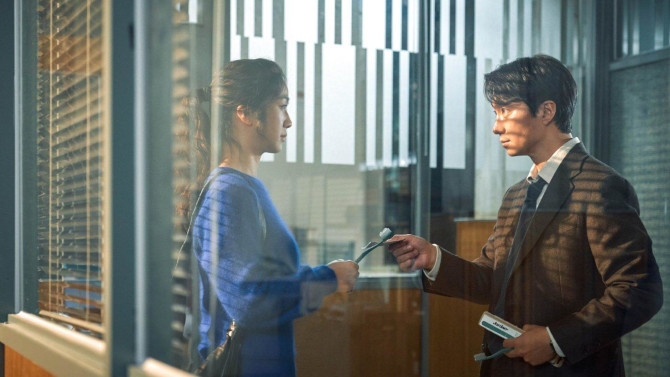
Brave the Elements
Park Chan-wook has never hidden the fact that he is a huge fan of Alfred Hitchcock – frequently highlighting Vertigo as the movie that got him into film making. Like many before him, perhaps most notably Brian De Palma, he has found clever ways to integrate influences from The Master of Suspense within his own work, the easiest comparison being Stoker... a loose remake of Shadow of a Doubt. But his most recent feature, Decision to Leave (2022), which he co-writes and directs, might even be more so – though crafted so subtly that you really need to know your Hitchcockian filmography to see where he is pulling from. Originally getting the idea from the song “Mist” by Jung Hoon Hee and Song Chang-sik, which fuses quite nicely with the above quotation from Confucius, this mystery crime thriller flits between the always mist filled skies of seaside Ipo and the mountainous city of Busan. Though insomniac detective Jang Hae-joon (Park Hae-il) resides in the former with his wife Jeong-ahn (Lee Jung-hyun), he lives six days a week in the latter – a place that he has moved to for his job.
-
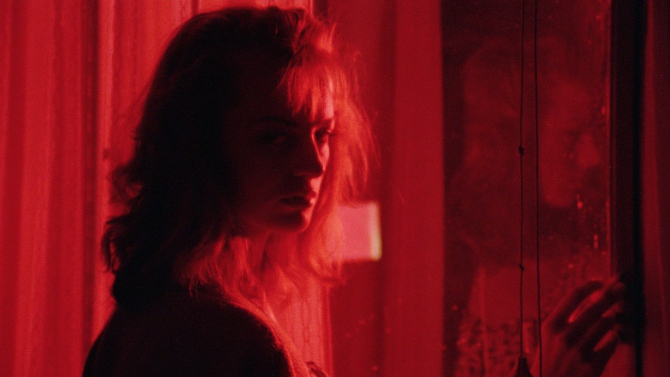
Pyjama Parting
The Pyjama Girl CaseMay 26, 2020You know you’re in for a giallo when the word is literally in the Italian title. . . La Ragazza Dal Pigiama Giallo, simplified in English by being called The Pyjama Girl Case (1978), the word giallo, if you recall, is in reference to the garish yellow used on the covers of many of the books writers pulled from to create the films’ narratives – in this case, it is referencing the distinctive colour of the pyjamas the murdered girl was wearing when found. Written and directed by Flavio Mogherini, and based on a real case (the unsolved murder of Linda Agostini in 1934), this is a very rare giallo set in Australia, Sydney to be specific. A narrative about foreignness, nearly everyone in this Down Under landscape is an immigrant searching for a better life (though, as you will see, this isn’t always the outcome).
-
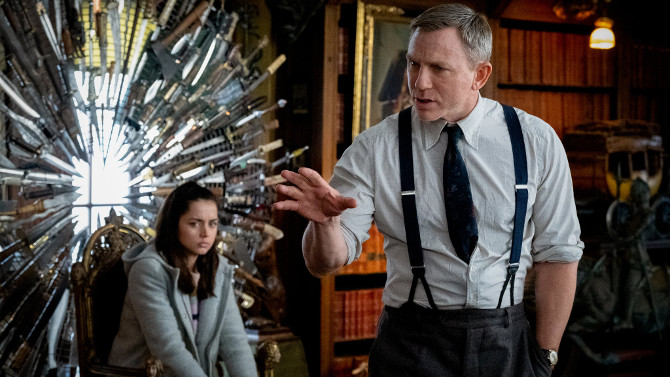
Blanc Check
Knives OutApril 6, 2020An Americanized twist on the Agatha Christie murder mystery, Rian Johnson writes and directs Knives Out (2019), an entertaining crime-centric dramedy that earned him an Academy Award nomination for Best Original Screenplay. Centred on the suicide (or is it murder – cue the dramatic music) of famed crime writer and patriarch Harlan Thrombey (Christopher Plummer), he was the centre (and benefactor) of his entire family. Though this is the genesis event, the main player is actually his kind-hearted and thoughtful caretaker/nurse, Marta Cabrera (Ana de Armas) – someone who is constantly reminded by Harlan’s relatives that she is a part of the family (despite them claiming she is from Ecuador, Cuba, Uruguay, Paraguay and Brazil – definitely part of the family). With a really weird disorder, she vomits anytime she attempts to lie – not good in a murder mystery.
-
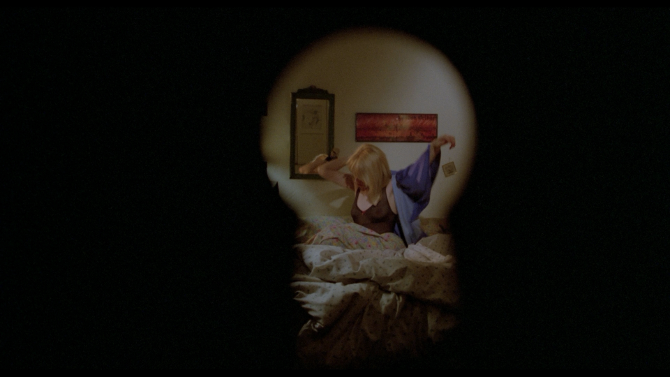
What’s In a Name?
OliviaMarch 29, 2020Are you in the mood for a Taste of Sin. . . perhaps with a dash of Double Jeopardy. . . and what the heck even is a Prozzie (for those of you not in the know, it is slang for a prostitute). . . or, to end with the most generic and lackluster of all, meet Olivia. Every once in a while, you’ve just got to love finding a little known, underground, low budget B movie that has stayed hidden from most of the world since its release (in this case, 1983), and Olivia (which was also released under the three other titles mentioned above) fits the bill. A film that pulls a bit from Alfred Hitchcock’s Vertigo (you might also recognize some similarities to Marnie and Psycho), as well as from the luridly entertaining crime and thrillers coming out of Europe the decade previously (gialli and poliziotteschi), and a number of other sources, co-writer/director Ulli Lommel (who was a frequent collaborator with acclaimed Rainer Werner Fassbinder), introduces us to poor Olivia (Suzanna Love as an adult; as a five year old – Amy Robinson), a young woman who has been dealt a poor hand in life. Growing up with her prostitute mother overlooking London bridge, she witnesses her mom’s demise at the hands of a sadistic American soldier (Nicholas Love). . . flash forward fifteen years, and she has found her way into the arms of the first brute she bumps into, Richard (Jeff Winchester) – already four years married to the uncouth, violent factory worker.
-
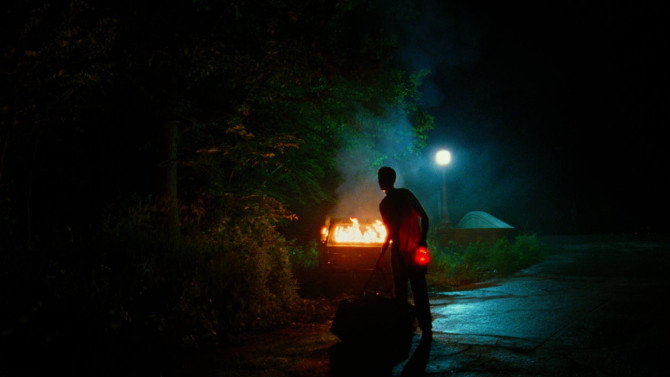
Going Under
Lost RiverMarch 27, 2020Ryan Gosling’s first, and to date, only writing and directing credit, 2014's Lost River is by no means a film for everyone. . . an arthouse style dark fairytale with tinges of gialli violence and colour, the actor turned filmmaker sets in place a slow, unsettling mood that will either hold you in its oppressive grip, or might just leave you up the creek without a paddle. The title a reference to the town in which we are dropped into, it is like much of smaller town America (and some of larger city America as well – it is actually filmed in Detroit), a crumbling locale where many young folks have fled, businesses sit empty, roving gangs of hoodlums burn houses for the fun of it, and everyone lives in a dystopic-like fugue state of depressed apathy.
-
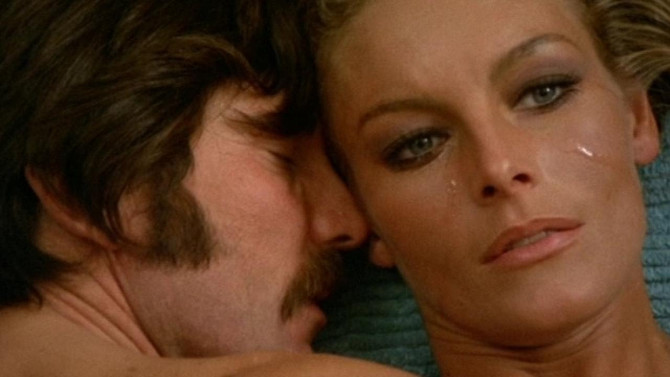
On His Venetian’s Secret Service
Who Saw Her Die?February 13, 2020Like a copycat killer, it is somehow unusual and rather suspicious that anytime a good film idea hits production, it seems like there is another similar project coming down the pipeline. . . sometimes referred to as ‘twin films’, countless examples exist – White House Down and Olympus Has Fallen, Hitchcock and The Girl, The Prestige and The Illusionist, Friends With Benefits and No Strings Attached, Darkest Hour and Churchill, The Descent and The Cave (anyways, you get the idea). Another intriguing example finds the horror classic Don’t Look Now having a doppelganger in the 1972 Aldo Lado directed giallo Who Saw Her Die? – though don’t jump to conclusions as to which one is the knock-off. Released a year prior to the 1973 feature, Who Saw Her Die? also finds itself set in the eerily beautiful city of Venice, where a couple is dealing with the death of their child. With numerous similarities, like a water-set funeral and an intimate sex scene, and though the set up and settings are similar, in many ways, they are separate entities.
-
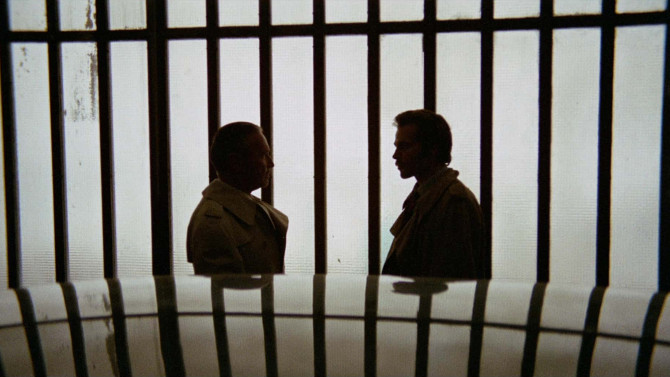
Auld Lang Five
The Fifth CordMay 21, 2019New Year’s Eve, a time meant for love and remembering old friendships, is ironically the start point of the 1971 giallo The Fifth Cord (directed by Luigi Bazzoni – The Possessed). Introduced by a disguised voice-over of a murderer planning his next victim, the psychedelic night club, which will introduce a number of main players in the sordid tale, is distortedly shown through a fisheye lens (using a long tracking shot, no less), Ennio Morricone music blaring, alcohol flowing as people strut, snarl, sulk, and stalk. Not long after people have departed the party, one of the goers, an English language teacher from Australia teaching in Rome, John Lubbock (Maurizio Bonuglia), is brutally attacked in a tunnel on his way home. . . and it seems as though the assailant had murder on his or her mind – while the only clue left behind is a black glove with its thumb removed (according to the police, this suggests that four other victims are likely to be in the would-be killer’s sight).
